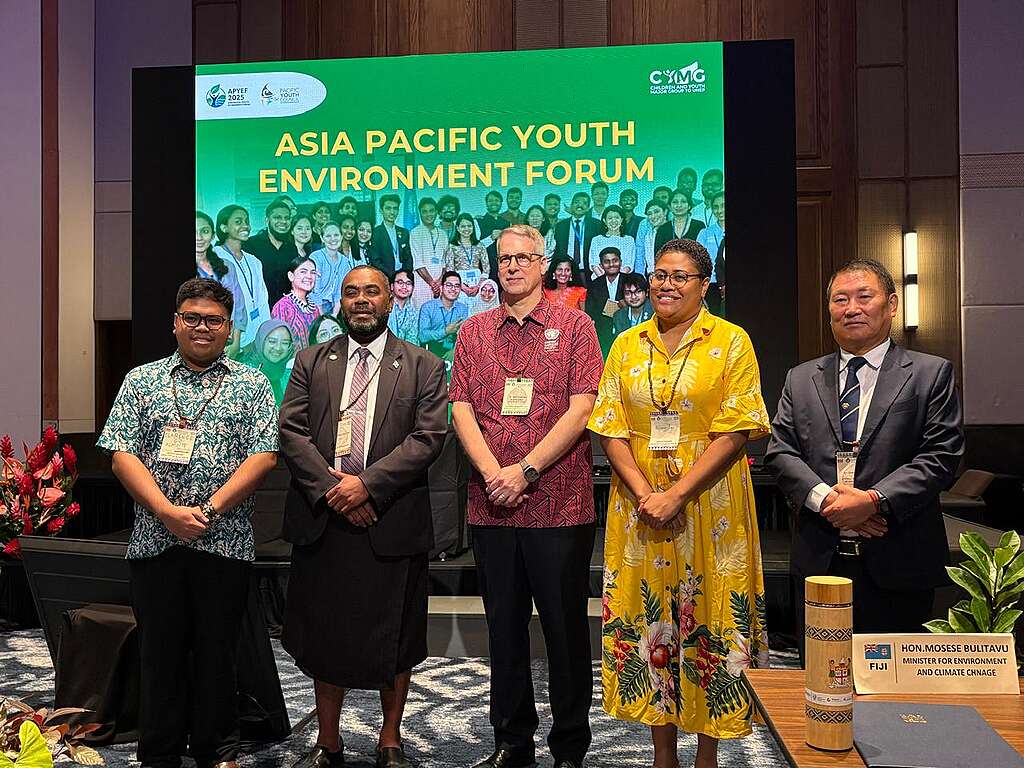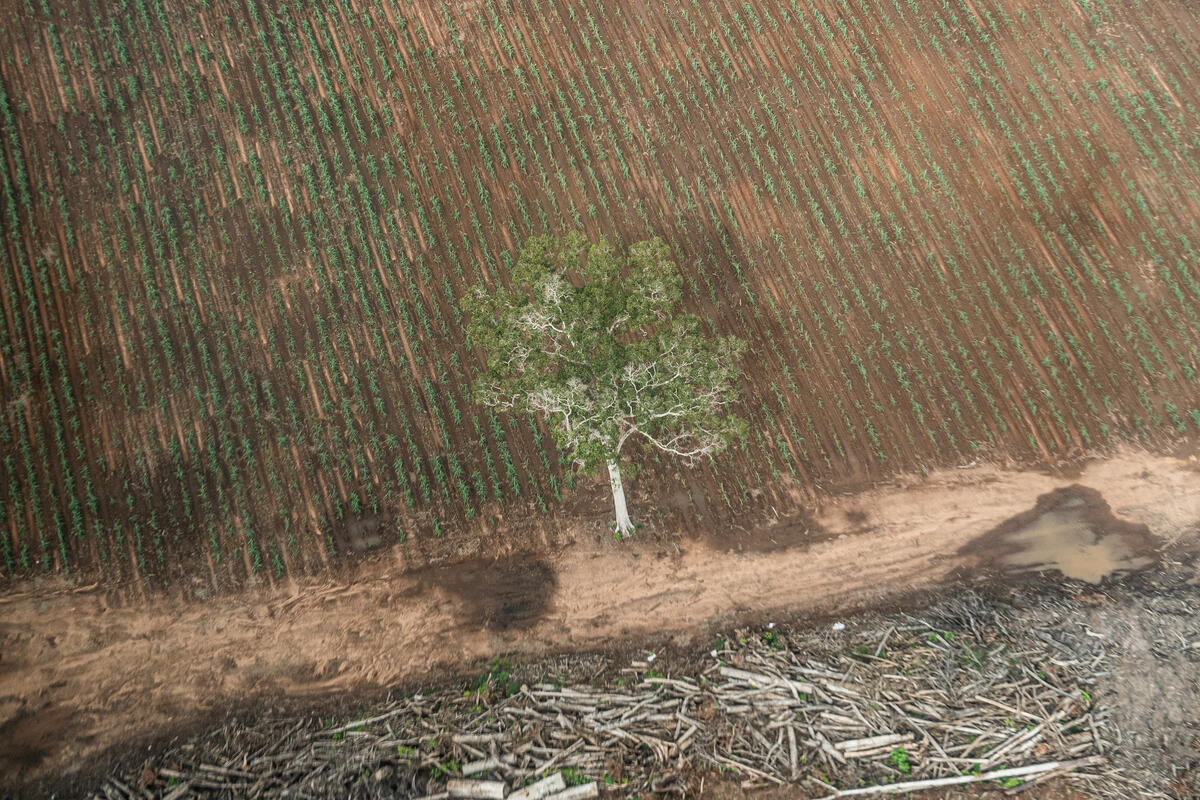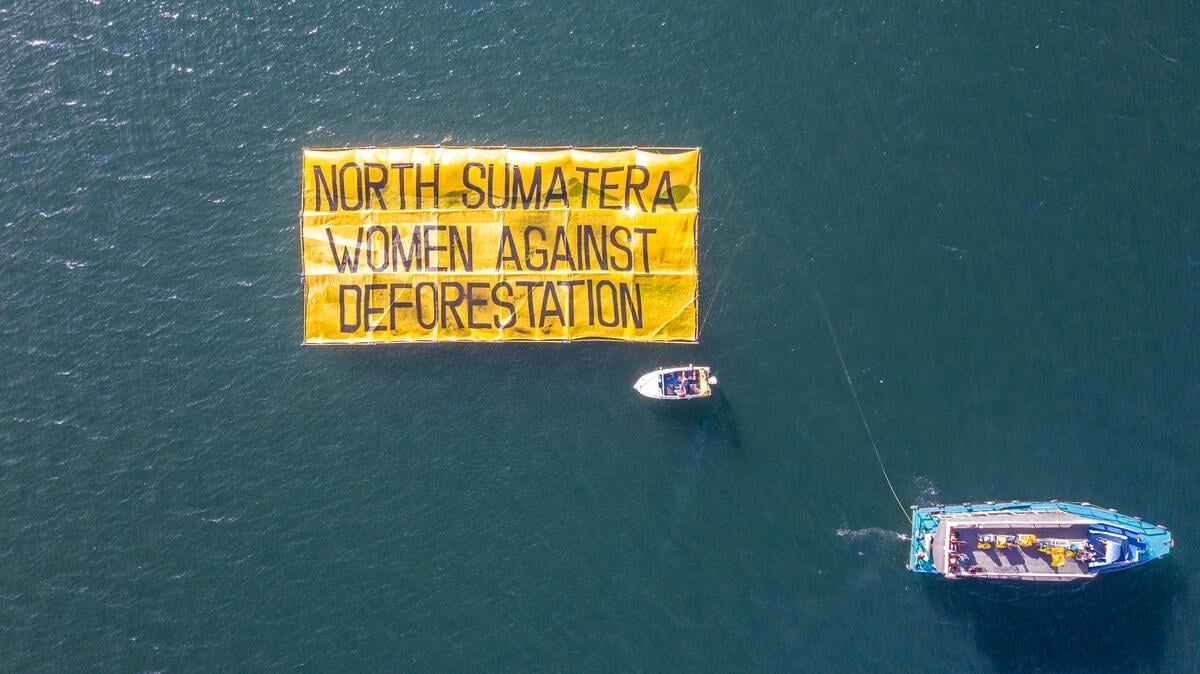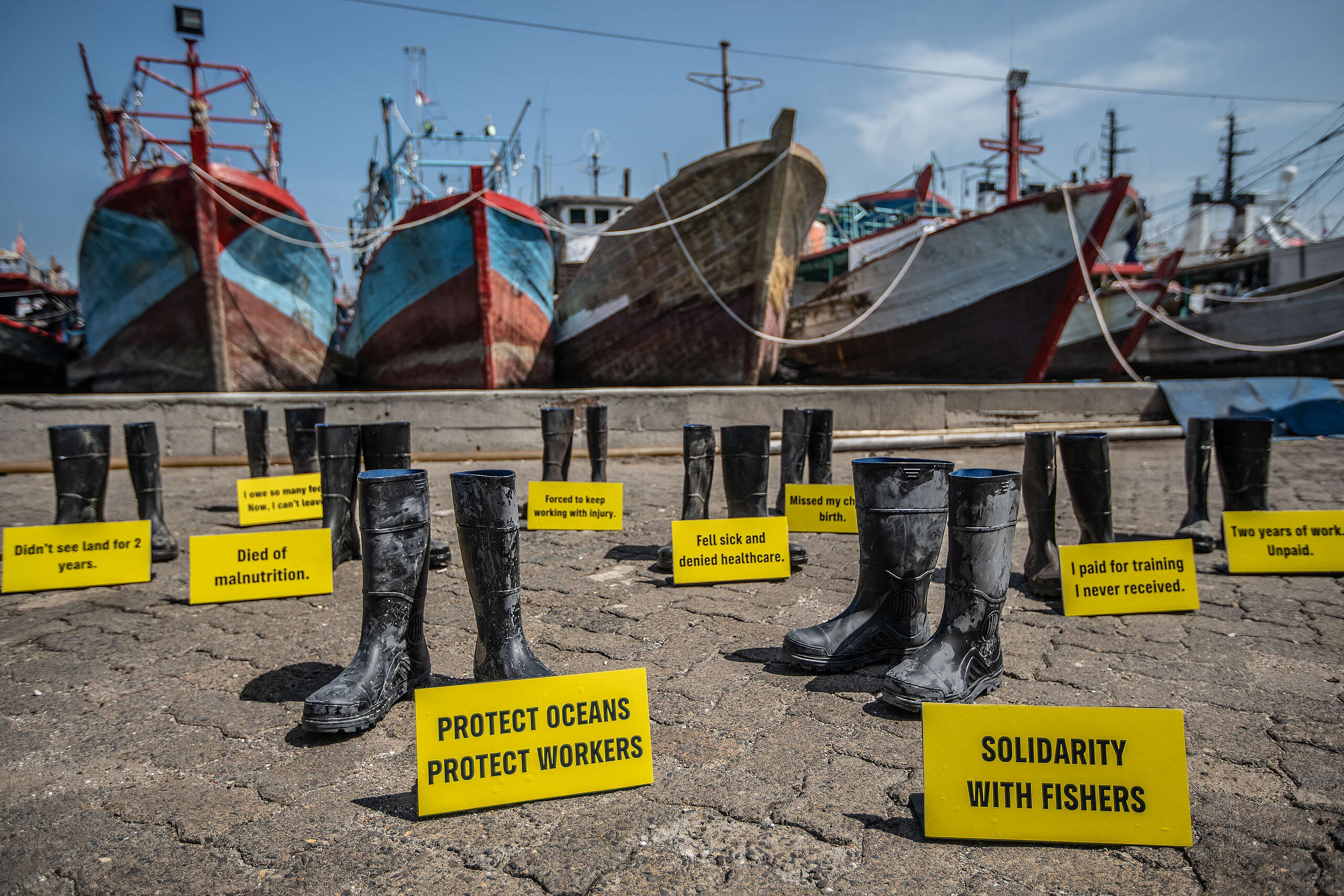Nadi (Fiji), August 26, 2025. As the Sixth Forum of Ministers and Environment Authorities of Asia Pacific (Sixth AP Forum) kicks off today in Nadi, Greenpeace Southeast Asia calls on governments to address the urgent need for global governance on minerals needed for energy transition, often referred to as “critical minerals” or “transition minerals”. Along with rising demand for nickel, cobalt, lithium, and rare earth elements for the energy transition, oversight for just, sustainable, circular critical minerals value chains are needed to protect human rights and the environment.
The forum, jointly organised by the Ministry of Environment and Climate Change of Fiji and the United Nations Environment Programme (UNEP), serves as the region’s premier platform for governments, intergovernmental organisations and stakeholders to address pressing and emerging environmental challenges. Outcomes from the Forum will inform the Asia-Pacific region’s contribution to the seventh session of the United Nations Environment Assembly in Kenya this December, while also giving Member States a critical opportunity to safeguard the environment, protect Indigenous Peoples’ territories and advance a just transition through robust critical mineral governance.

Rayhan Dudayev, senior regional campaign strategist for Greenpeace Southeast Asia, who is attending the Forum in Fiji, said, “Projected growth in demand for energy transition minerals is being used to justify an extractive industry boom in which their designation as ‘critical’ is allowing environmental and social impacts to be ignored. For instance, as the nickel mining industry has expanded in Global South countries like Indonesia, biodiversity-rich areas like West Papua’s Raja Ampat archipelago are under threat of destruction.”
In its #SaveRajaAmpat campaign, Greenpeace Indonesia revealed the full scale of the threat nickel mining poses across an area often referred to as “The Last Paradise on Earth” and featured in prominent lists of top travel destinations. Nickel mining causes sedimentation, pollution, and deforestation that results in irreversible damage to the marine ecosystem, including coral reefs, and poses potential threats to other marine life. These activities also degrade terrestrial habitats and exacerbate violations of Indigenous Peoples’ rights in the region.
On June 10, 2025, the Indonesian government announced the revocation of four out of five active nickel mining licenses in Raja Ampat. While this sets a good example of how public outcry can prompt governments to take action, we continue to urge for full and permanent protection of important and vulnerable ecosystems from extractive industries.
“UNEA should come up with a resolution for the just and sustainable use of energy transition minerals, where human rights protection and FPIC (free, prior, and informed consent) of Indigenous Peoples and local communities are compulsory. We also urge member states to designate critical, vulnerable, and culturally significant areas, such as Indigenous Peoples’ territories and UNESCO World Heritage/Global Geopark sites, off-limits to mineral exploration and exploitation,” said Dunxin Weng, a campaigner for Greenpeace Southeast Asia in Malaysia. According to a UNESCO report, licenses for the exploration or production of oil, gas, and minerals within natural World Heritage sites remain common, affecting around a third of these sites. The rate is even higher in the Asia-Pacific region, where according to UNESCO, 42%, or 35 out of 84, natural World Heritage sites overlap with such extractive assets.
Greenpeace Southeast Asia also calls on participants in the Sixth AP Forum to place the environmental impacts of military invasion and armed conflict on the agenda for the 7th UNEA session in Kenya. The demand for a ceasefire and peace should be integrated with environmental restoration and resilience-building measures.
“Armed conflicts in many places in the world, let alone the genocide happening in Gaza and international communitis culpability have dire consequences for ecosystems and violate the rights of many people to enjoy and live in a healthy environment. The Forum must revisit a preliminary assessment published by the UN in June 2024, which stated that the environmental impacts of the war in Gaza are unprecedented. The community is facing risks of rapidly growing soil, water, and air pollution and irreversible damage to the natural ecosystem, in addition to the untold suffering from the ongoing Israeli military operations,” added Rayhan.***
Contacts:
- Rayhan Dudayev – Senior Regional Campaign Strategist, Greenpeace Southeast Asia, [email protected]
- Dunxin Weng – Zero Waste Campaigner, Greenpeace Southeast Asia-Malaysia, [email protected]
- Budiarti Putri – Communications Campaigner, Greenpeace Southeast Asia-Indonesia, [email protected], +62 811-1463-105



